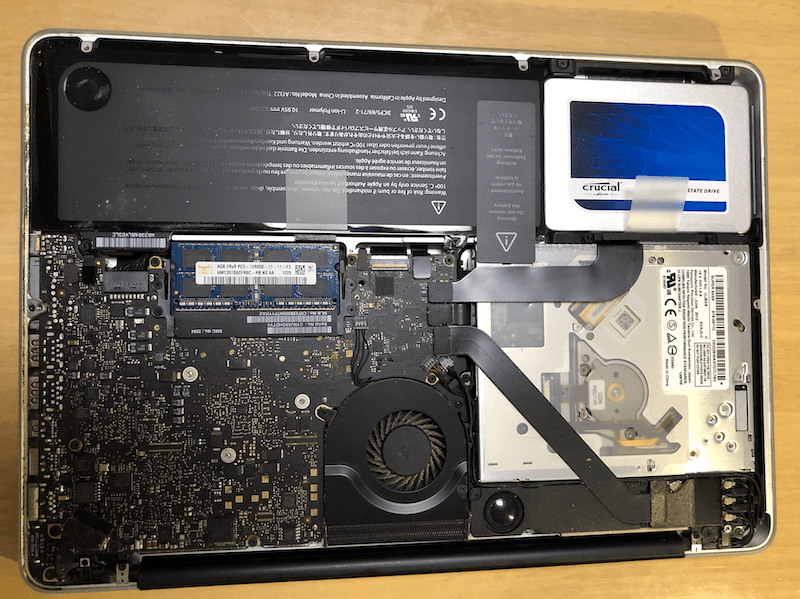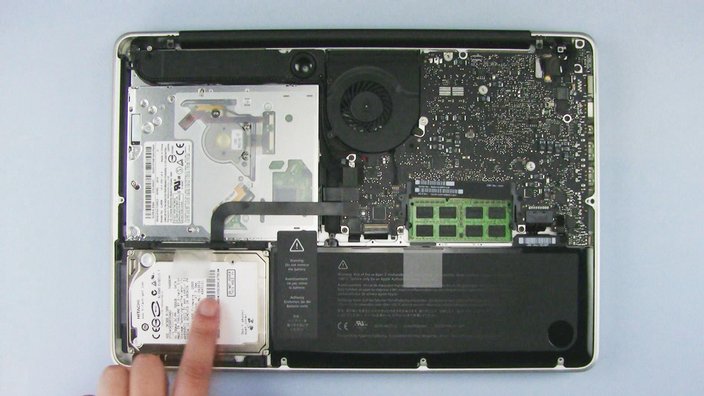

I never shut down the Mac and tried to reboot with that little free space. That was years ago and I managed to recover fine at that time by just deleting a bunch of files. The only practical experience I ever had when macOS brought up the hard drive space low message at which point the free space I had was in the MB range on an 80GB dive.

Maybe by doing more research one might come across valid controlled test s, but I haven't up till now. If you read 10 articles on the net (hopefully recent ones) about the amount of free space on spinner hard drives and SSDs you will get 11 opinions. Rather than pack a drive, I'll go get another one.
#Ssd for macbook pro mid 2010 plus#
I have 11 external drives, plus the internal on the Mac, none of which are much over 2/3 full. Personally, no matter the numbers of what CAN be done, I leave a lot of room on all my drives, spinners and SSDs.

I haven't seen Randy's comments so I won't address them. I don't have a practical number for what is optimum, I'm not sure the research is really strong enough to make an absolute call on that. What will happen if you keep an SSD really full, is that the number of writes to the drive will go up quickly, and with not much room for wear-levelling, the drive will wear out faster than it would if less full. That probably came from yesterday, when I launched Parallels and Win10 to look at a question someone asked about it. Right now, on my MBP, the swap is shown as 277.8 MB. I've read that for the typical user about 5% is plenty, but I suspect a larger drive could be less, maybe a little as 3% on a 2TB SSD. So how much to leave depends on how much memory you have and what you are doing. On an SSD, again, it's not so critical, but what you want to avoid is needing space for swap and not having it. Again, on a spinner, you want to avoid fragmentation on those three because of the rotational/traverse latencies. 2) The operating system needs some space on the drive for scratch space, cache and swap space.

The rotational latency and head traverse times make a badly fragmented drive really slow. That factor is much more critical on spinners than SSDs, as I said. The idea on leaving space on drives has a couple of components: 1) The drives themselves want empty space to avoid fragmentation. Backups are more important for SSDs because they give no warning of pending failure. They work, work well, until they fail, usually catastrophically. I've never heard about SSDs slowing down dramatically. Technology moves on.Ĭlick to I didn't address that because the poster did not cite any reference for what had been "heard" somewhere. I will give the article some slack, it's seven years old. Also, when the drive is idle, the controller does the cleanup of any partially used memory blocks or pages so that when the next write comes along, space is optimized and ready. Generally you need to leave 10% free on a spinner, but an SSD will function quite nicely all the way to about 3%, although I would leave a bit more on a boot drive if your RAM is heavily used so that swapping always has room on the drive. So the data is spread around to keep from hitting any one address too many times.Īs a result of all that, SSDs actually don't need as much free space as do spinners. In fact, SSDs deliberately spread data around for what is known as wear-levelling, as the memory locations can only be used for a certain (really high) limited number of times. SSDs don't have to move any heads, don't really care about contiguous space because any address is equally accessible and fragmentation is meaningless. That is why defragging a spinner can improve performance. All those head moves take time, making the response time slow. Spinners need a lot of space on them because they try to find a contiguous space to write the file, and if they cannot find that space, the heads have to move a lot more to spread the fragments of the file all around the discs. SSDs performance, compared to spinners, is really so much faster that any slowdown that might be caused by the drive having to do some data juggling is trivial. Lots of really bad information in that article.


 0 kommentar(er)
0 kommentar(er)
